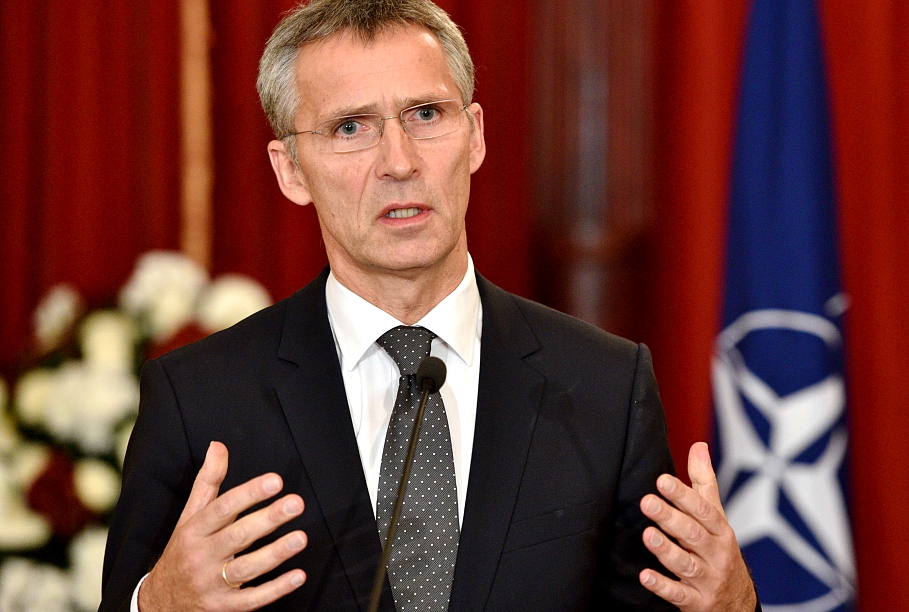Speaking after talks with President Andris Bērziņš, Stoltenbergs said the alliance would "do what it takes" to protect all of its members, Baltic states included.
"We will always adapt our armed forces our military capabilities and capacities to the security environment which is surrounding us. So when we now are adapting our forces to the fact that we have seen a more aggressive Russia which is conducting aggressive actions in Ukraine, that's an example of how NATO is adapting to changing challenges," Stoltenberg said.
"We will also do that in the future but just to implement the readiness action plan, to continue with the military assurance measures with more military presence in the air, on the ground and at sea as we have already done and will continue to do and to establish the spearhead force to have intelligence, more situation awareness, invest more in defense – that's in itself a strong, united and firm response to the increased military presence we see from Russia along NATO's borders.
If needed we will do more. We will do what it takes to defend and protect all allies against any threats and that's also of course the case for Latvia and all the Baltic countries.
He also rejected Russian calls that Ukraine should promise never to join the alliance, dismissing such demands as “a violation of the fundamental principles we have agreed on in Europe."
"Just to ask for or to call for or to require that Ukraine shall give some kind of guarantee that it never shall become a member of NATO is actually something that is violating the idea of respecting the independence, the sovereignty of Ukraine," Stoltenbergs said.
"Ukraine is not asking for membership. Ukraine has adopted a policy of... a non-bloc policy. I respect that. I respect the decision of Ukraine as I also expect Russia to respect decistions taken by an independent nation, Ukraine, if they later on would like to apply for membership in NATO."
On Friday morning Stoltenberg is due to inspect allied troops at the Adazi military base outside Riga.



























